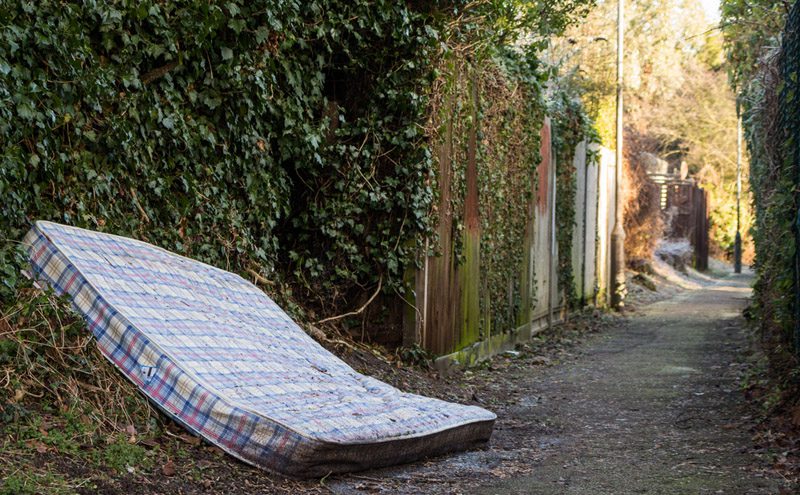
The spectre of “mattress mountains” was invoked by Nick Oettinger of the The Furniture Recycling Group, in comments made to The Times and many other newspapers published on 26 June.
Oettinger bemoaned the difficulties and costs of disposing of mattresses responsibly, leading many recycling firms to abandon attempts to do so. And this had led these items to become a more frequent sight on landfills and vacant land. Of the 63 million mattresses in use in the UK, seemingly only 16% are recycled.
He said the problem was unlikely attributable to gross irresponsibility, but more a comment on the overwhelming nature of the task. “Most recycling companies enter the industry with all good intentions, but with mattress recycling being so expensive, time-intensive and difficult, many find it impossible to maintain the necessary level of operation to cope with the scale of the task at hand.”
Oettinger’s firm handles mattress disposal for local authorities, waste management firms, hospitals and the like. He said he decided to speak out after being contacted by landlords who had been “stung” by irresponsible recyclers. His company has also recently launched a patented machine said to be capable of dismantling and separating mattress parts.
Design initiative shortfall
Bruce Bratley, CEO and founder of London recycling firm First Mile, commented that the reports were “a stark reminder that we must be doing more to reduce their impact on the environment.” He pointed the finger more at lazy designers and foot dragging with the effort to design eco-friendly products.
“With their complex mix of materials, mattresses are notoriously hard to recycle, but new recyclable materials are appearing on the market all the time, and are making it easier for designers to make eco-friendly products. However, designers are still cost-cutting and using customer preferences as an excuse to create lazy products.”
“Recycling firms are upping the ante and investing in technology that will allow them to recycle more and more in the future but if products are not made to be eco-friendly in the first place there is only so much that can be done.”
“Businesses must realise the benefits that can arise when they promote recyclable products beyond that of the environment. Consumers and employees increasingly want to align themselves with ethical brands, so using recyclable materials is an investment in their business.”
“The government must also take a stronger stance on this issue to ensure that furniture can and is disposed of correctly and sustainably.”







